Do you know who oversees the financial markets and the FX brokers activities? Yes, the financial regulators. But not all financial regulators are equal. Some offer a lesser degree of safety to retail investors, whereas others can even help you to get your funds back (or at least part of it).
Discover in this complete article who are the financial and Forex regulators offering the best protection for retail investors and your money if things turn ugly.
KEY TAKEAWAYS
The gold standard for financial regulators is the UK FCA (Financial Conduct Authority).
FX brokers regulated by tier-1 financial regulators offer ICF (Investor Compensation Fund) to retail investors.
In Europe, the ESMA (European Securities and Markets Authority) is a financial regulatory. agency supervising the financial markets in Europe and strengthening retail investor protection.
Financial Regulators
| Country | Rating | Investor Compensation Fund | Segregated Accounts | Negative Balance Protection | Maximum Leverage |
|---|---|---|---|---|---|
| Australia ASIC | 4.0 | 30:1 | |||
| Belize IFSC | 2.0 | 400:1 | |||
| Bermuda BMA | 2.0 | 500:1 | |||
| Canada IIROC | 5.0 | up to $CAD 1 million | 50:1 | ||
| Cyprus CySEC | 5.0 | up to €20,000 | 30:1 | ||
| Mauritius FSC | 2.0 | 500:1 | |||
| Seychelles FSA | 2.0 | 2000:1 | |||
| South Africa FSCA | 3.0 | 200:1 | |||
| Switzerland FINMA | 5.0 | up to CHF 100,000 | 30:1 | ||
| Saint Vincent and the Grenadines FSA | 2.0 | 1000:1 | |||
| UAE DFSA | 4.0 | 500:1 | |||
| UK FCA | 5.0 | up to £85,000 | 30:1 | ||
| USA NFA | 4.0 | 50:1 | |||
| Vanuatu VFSC | 2.0 | 1000:1 |
Table of Contents
Financial Regulators: Goals and Powers
Financial regulators are normally established by governments to supervise the financial market activities of registered firms engaged in such activities or offering related services.
The objective of the financial regulators and its creation, is to establish the guidelines by whom registered firms must comply in order to legally operate in the financial markets.
Financial regulators also have the important tasks of preventing, and to investigate financial fraud, keep the markets efficient and transparent, and more importantly, regarding retail investors, to make sure customers and clients of regulated firms are treated fairly and honestly.
To sum up, the two main reasons for the creation of such regulatory bodies are:
Increase market confidence, by supervising the financial activities of registered firms
Increase financial consumer protection, by ensuring the appropriate level and mechanisms to safeguard consumers are in place
And with this we want to clarify that not all financial regulators are created equally. As some might be more “rigorous” on the financial firms, and with an increased level of protection to consumers, others are lacking mechanisms and stronger regulations, which is translated in less protection for consumers.
Tier-1 financial regulators, such as the UK FCA, enforce the regulations to the registered firms in the United Kingdom. If a firm is not registered with the regulator and is operating in the financial markets, caution. It means that firm is operating illegally and could be an absolute money scam.
Financial regulators have the powers to impose a monetary fine, on a financial firm, a bank, a broker, and even private individuals acting as financial advisors. They also have the power to investigate and take disciplinary action against such firms or individuals.
In addition, financial regulators also have the power to start criminal proceedings and ultimately strike-off from the registrar a company found guilty in court or a company with too many disciplinary actions.
Investor Compensation Fund
The ICF (Investor Compensation Fund) is a fund created by the financial regulators, or acting as an independent entity, where a subscription fee is paid to the fund by its participants, i.e., the registered financial services companies.
Financial firms operating in Europe and Canada have to, by default, be a participant of the country’s or economic zone ICF. This is actually one of the requirements need to be issued with a financial operator licence by the financial regulator.
Companies offering services in the financial sector, including CFDs and FX brokers with registered address in Europe and Canada, have to be members of the ICF and pay the according subscription fee. The ICF is an extra layer of protection for retail investors depositing money with CFDs brokers.
The goal of the ICF is to assure covered clients of the ICF members, that their funds are protected, and that eventual claims arising against the ICF members can be entitled for compensation, if the necessary conditions are fulfilled.
This means, in case of customers of CFDs brokers members of an ICF, that all retail investors (not the customers classed as professionals) may apply for financial compensation with the ICF.
Retail investor’s maximum compensation covered by an ICF can vary. For example, with the CySEC ICF the maximum compensation for retail investors is up to €20,000, with the UK’s FCA is up to £85,000 and with the Canada’s IIROC is up to $CAD 1 million.
This compensation entitlement, if an ICF member is unable to meet its obligations, applies to the total number of claims by a litigant against an ICF member, notwithstanding the number of accounts held, currency and place of offering of the investment service.
UK Financial Regulator: FCA
5.0
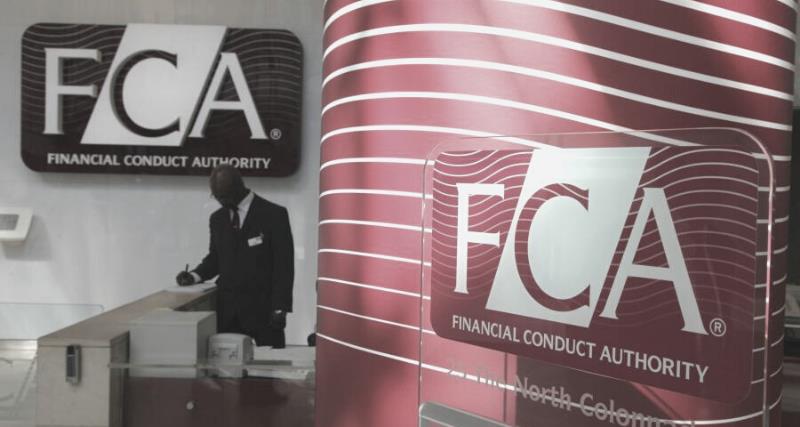
| Segregated Accounts | Negative Balance Protection | Investor Compensation Fund | CFDs Max Leverage |
|---|---|---|---|
customers deposits are kept separate from the company's funds | traders are protected from losses bigger than their original investments | up to £85,000 | *30:1 Major FX pairs |
| *20:1 Minor FX pairs, Gold and Major Indices | |||
| *10:1 Commodities | |||
| *5:1 Shares | |||
| *2:1 Cryptocurrencies | |||
| *Traders classified as Professional can apply for higher leverage ratios | |||
The FCA (Financial Conduct Authority) is the financial regulatory body of the UK’s financial market, but operates independently from the UK Government. The FCA is financed by the registration fees charged to the registered members of the UK’s financial services industry.
The FCA works alongside the Prudential Regulation Authority and the Financial Policy Committee to set the regulatory requirements for the UK’s financial sector. The FCA also works with the Financial Ombudsman Service, a free service to help settling complaints between consumers and firms operating in the financial services industry.
Financial firms registered with the UK’s FCA are also members of the FSCS (Financial Services Compensation Scheme), an independent compensation fund of last resort for customers of authorised UK financial services firms, covering eligible clients claims up to £85,000.
Cyprus CySEC
5.0
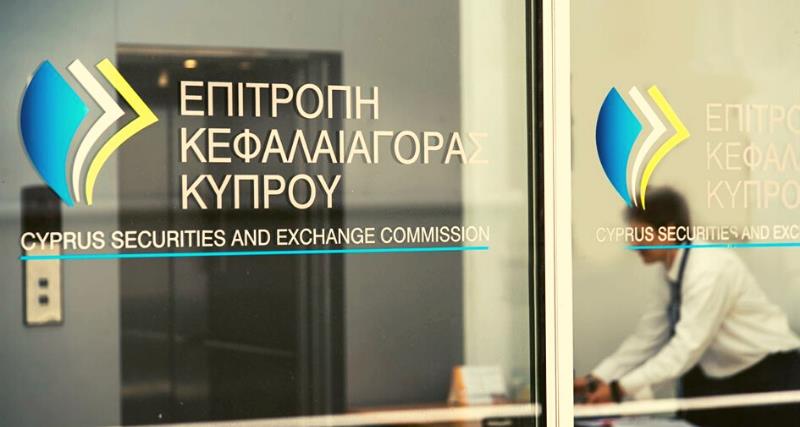
| Segregated Accounts | Negative Balance Protection | Investor Compensation Fund | CFDs Max Leverage |
|---|---|---|---|
customers deposits are kept separate from the company's funds | traders are protected from losses bigger than their original investments | * up to €20,000 | 30:1 Major FX pairs |
| 20:1 Minor FX pairs, Gold and Major Indices | |||
| 10:1 Commodities | |||
| 5:1 Shares | |||
| 2:1 Cryptocurrencies | |||
| *Traders classified as Professional are not covered by the ICF | |||
The CySEC (Cyprus Securities and Exchange Commission) is the main financial regulator for the European Economic Zone. We mean main as the majority of the CFDs brokers are regulated by the CySEC.
This reason is explained by the simple fact that Cyprus has one of the lowest corporate tax rates in Europe and offers a number of benefits for investors and financial companies. So, no surprise that during the last decade, several FX brokers set their head office in Cyprus, for tax purposes, and became under the supervision of the Cyprus CySEC.
This financial regulator complies with the rules set out by the ESMA (European Securities and Markets Authority). All the CFDs brokers registered with the CySEC are members of the CySEC ICF, covering eligible retail clients claims up to €20,000.
ESMA (European Securities and Markets Authority)
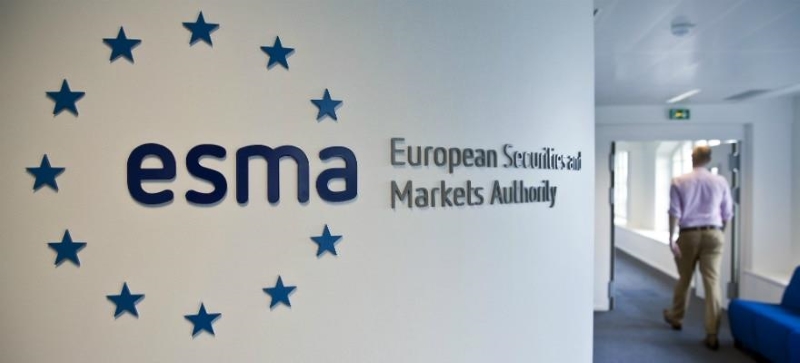
The ESMA - European Securities and Markets Authority is an independent EU Authority that sets the rules contributing to safeguard the strength and safety of the EU's financial system.
The ESMA is the EU’s financial watchdog and this entity actively works to enhance the protection of investors and to promote a stable and efficient financial market in the EU.
Notably, on the 1st of August 2018, the ESMA enforced trading restrictions regarding the trading of CFDs and spread betting for retail investors. The most relevant changes were the complete ban of binary options trading and the setting of new leverage limits for CFDs trading for retail investors. The new limits set by the ESMA range from a maximum of 30:1 for Forex CFDs and minimum of 2:1 for crypto currencies trading.
The new leverage limits applied to traders categorized as retail investors only, while experienced traders, categorized as professional clients, were excluded. But this also meant that professional clients were excluded from the same investor protections as retail investors (excluded from the ICFs).
Australia ASIC
4.0
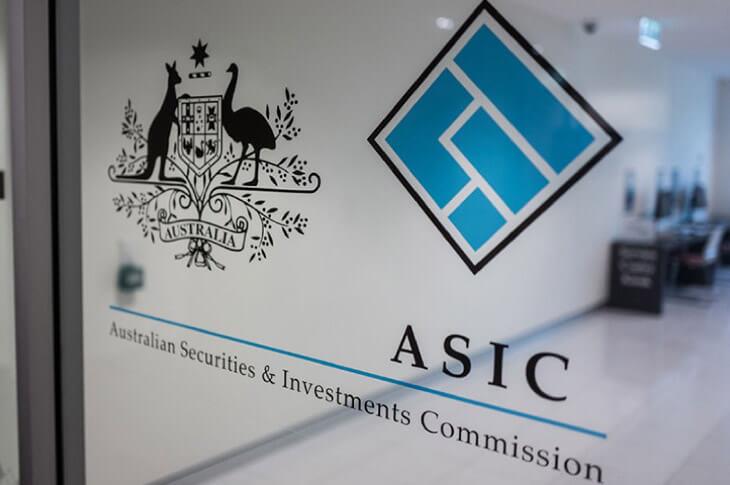
| Segregated Accounts | Negative Balance Protection | Investor Compensation Fund | CFDs Max Leverage |
|---|---|---|---|
customers deposits are kept separate from the company's funds | traders are protected from losses bigger than their original investments | *30:1 Major FX pairs | |
| *20:1 Minor FX pairs, Gold and Major Indices | |||
| *10:1 Commodities | |||
| *5:1 Shares | |||
| *2:1 Cryptocurrencies | |||
| *New leverage limits apply from the 29th March 2021 | |||
Australia’s ASIC (Australian Securities and Investments Commission) is an independent Australian government body, operating under the direction of commissioners appointed by the Governor-General.
The ASIC was set up under and administer the Australian Securities and Investments Commission Act 2001 (ASIC Act), with the main roles of maintaining, facilitating and improve the performance of the financial system and the companies operating in the financial markets.
ASIC has the powers to administer the law effectively, to make information about financial companies and other bodies available to the public, to take action against companies not complying with the financial laws of Australia, and if necessary, prosecute offenders.
Customers of ASIC registered FX brokers are not covered by any Investor Compensation Fund.
USA National Futures Association (NFA)
4.0
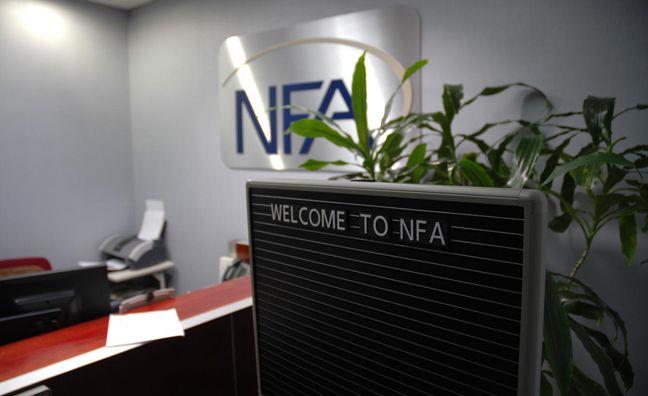
| Segregated Accounts | Negative Balance Protection | Investor Compensation Fund | Max Leverage |
|---|---|---|---|
customers deposits are kept separate from the company's funds | traders account balance can go below zero | 50:1 Major FX pairs | |
| 30:1 Minor FX pairs | |||
| 20:1 Exotic pairs |
The USA NFA (National Futures Association) is a self-regulatory organization for the United States futures industry, supervising Forex activity by regulated Forex Dealer Members (FDMs) and Retail Foreign Exchange Dealers (RFEDs).
The foundation of NFA’s regulatory anatomy is the mandatory membership of the financial services companies operating in the USA, thus making industrywide regulations effective. The NFA is mainly financed from membership fees, and from assessment fees paid by its members and users of the derivatives markets.
The NFA works to identify the financial industry best practices and then make them mandatory for the entire industry. To enforce the financial sector rules, the NFA can take disciplinary actions against its members when rules are infringed.
Although lacking an Investor Compensation Fund, the NFA is an efficient arbitration resource to help customers and members resolve Forex related disputes.
Dubai DFSA
4.0
The Dubai Financial Services Authority (DFSA) is an independent financial regulator supervising companies conducting business, and offering financial services, in or from the DIFC (Dubai International Finance Centre), a financial free zone in Dubai, UAE.
The DFSA regulatory mandate includes the regulation and supervision of asset management companies, banking and credit services, securities trading companies, collective investment funds, commodities futures trading, and Islamic finance.
In addition to regulating the financial services companies in the DIFC, the DFSA is also responsible for supervising and enforcing anti-money laundering (AML) and counter-terrorist financing (CTF) requirements applicable in the DIFC.
The DFSA main enforcement powers are to detect misconduct, particularly serious misconduct, conduct investigations fairly and efficiently, cooperate with other regulatory authorities in the UAE and other jurisdictions and take appropriate action to address misconduct, which may include imposing severe sanctions, ensuring that these sanctions are sufficient to deter perpetrators and others from engaging in similar misconduct.
South Africa FSCA
3.0
The Financial Sector Conduct Authority (FSCA) is the financial regulator of registered financial companies in South Africa. The FSCA is responsible for market conduct regulation and supervision, with the goals of enhancing and supporting the efficiency and integrity of the financial markets.
The FSCA has mechanisms in place to protect customers of financial companies, and to promote their fair treatment by financial institutions, as well as providing financial customers with financial education.
The FSCA has the powers to sanction and take legal action against financial companies in breech with financial sector laws. These powers include suing in a company in Court, or to place an institution under curatorship or imposing administrative penalties.
Regarding FX brokers registered in South Africa, the FSCA successfully took legal action against Basfour 3773 (Pty) Ltd, trading as Oinvest, and found guilty in 4-10-2020 of contravening section 7(1)(a) and 13(3) of the FAIS Act. Oinvest FX broker was fined R58 608 810 (USD 3 783 562).
Saint Vincent & Grenadines FSA
2.0
The Financial Services Authority (FSA) in the Caribbean island of Saint Vincent & Grenadines is the regulatory body for the financial services companies registered in the island.
Little is known about this financial regulator and what mechanisms are in place to safeguard and protect funds of retail investors, other than being responsible to enforce the FSA (Financial Services Act) rules.
Several FX brokers have decided to register their business with the FSA of St. Vincent & Grenadines, mainly, in our view, for three reasons: the ease of registering a non-domestic company, the island low-taxation on foreign business and the fact that an FSA licence allows brokers to offer their services globally, except in countries having their own regulatory bodies, such as North American countries or European countries.
Nevertheless, we feel that this financial regulator lacks the proper regulations and mechanisms to deter bad-intentioned individuals and companies, and protect consumers.
Even the basic safety mechanisms made compulsory by tier-1 financial regulators, to FX brokers, such as segregated accounts, negative balance protection and leverage restrictions, are not adopted by the Financial Services Authority (FSA) in the Caribbean island of Saint Vincent & Grenadines.
Seychelles FSA
2.0
The Seychelles Financial Services Authority (FSA) is the financial regulator overseeing the activities of financial companies registered in the Seychelles archipelago.
Similar to its tier-4 counterparties, the Seychelles FSA lacks the mechanisms made compulsory by tier-1 financial regulators, to ensure that better protections are in place to safeguard funds and deposits of retail investors.
FX brokers registered with the Seychelles FSA, do not need to hold client’s funds in segregated accounts, nor offer negative balance protection and with no leverage restrictions imposed by this financial regulator, some FX brokers are even offering 2000:1 leverage!
Therefore, we consider the level of protection offered by the Seychelles FSA to FX retail investors very low.
Bermuda Monetary Authority (BMA)
2.0
The Bermuda Monetary Authority (BMA) is another Caribbean financial regulator for companies incorporated by non-Bermudians, conducting business and offering financial services outside Bermuda.
Again, we are in the presence of a tier-4 regulator with very unclear supervision and regulation rules for the digital asset business (including crypto currencies and Forex brokerage services).
Without any Investor Compensation Fund, compulsory segregated accounts and negative balance protection in place, the Bermuda FSA cannot be considered a strong financial regulator regarding the protection of FX retail investors.
Belize IFSC
2.0
The Belize International Financial Services Commission (IFSC) is a statutory body established as the financial regulator and watchdog to supervise the international financial services sector of companies based in Belize, and is under the direct responsibility of the Minister of Finance.
Again, little is offered by this Caribbean financial regulator to FX retail investors. This tier-4 regulator also lacks the mechanisms imposed by its tier-1 counterparties such as segregated accounts and NBP.
Shockingly, we found on this regulator’s website, what are the IFSC disciplinary proceedings if this entity finds that an IFS Practitioner has contravene any Act or regulations: “severe reprimand; suspension of the licence of the IFS Practitioner for a period not exceeding six months; revocation of licence; and a fine no greater than five thousand dollars.”
Mauritius FSC
2.0
The Mauritius FSC (Financial Services Commission) is the financial regulator for the non-bank financial services sector and global business registered on the Indian Ocean island of Mauritius.
The Mauritius FSC is currently a tier-4 financial regulator in charge of licensing, regulate, monitor and supervise the conduct of business activities in these sectors.
Several retail FX brokers are choosing the island of Mauritius to register their businesses, not because and contrarily to its tier-4 peers, regulations are less strict, but because the costs of a financial licence are substantially lower, 3,000 USD processing fee and 9,500 USD fixed annual fee.
Despite being a tier-4 financial regulator, the Mauritius FSC makes compulsory for retail FX brokers to use segregated accounts for client’s deposits, keeping funds separate from the companies’ own funds and are proactive in disqualifying and revoking licences to companies or individuals not complying with the rules.
Conclusion
When looking for a retail FX broker, the main factor to pay attention should be safety of funds. No one wants to deposit with a broker (or any other investment company) that is registered in a country not offering the minimum level of protection to retail investors.
If things turn sour, most likely, the guilty party might get away with just a warning or a small monetary penalty and carry-on conducting business and creating more heartaches for other investors.
Even if FX brokers are registered and regulated by tier-1 financial regulators, when a retail investor decides to open a trading account and deposit funds, he/she should confirm with which entity they are going to feal with.
Several CFDs brokers are registered, simultaneously, with tier-1 financial regulators, like the CySEC for European customers, but also with tier-2 Seychelles FSA, which does not offer the same level of protection as for the European customers of that broker.






